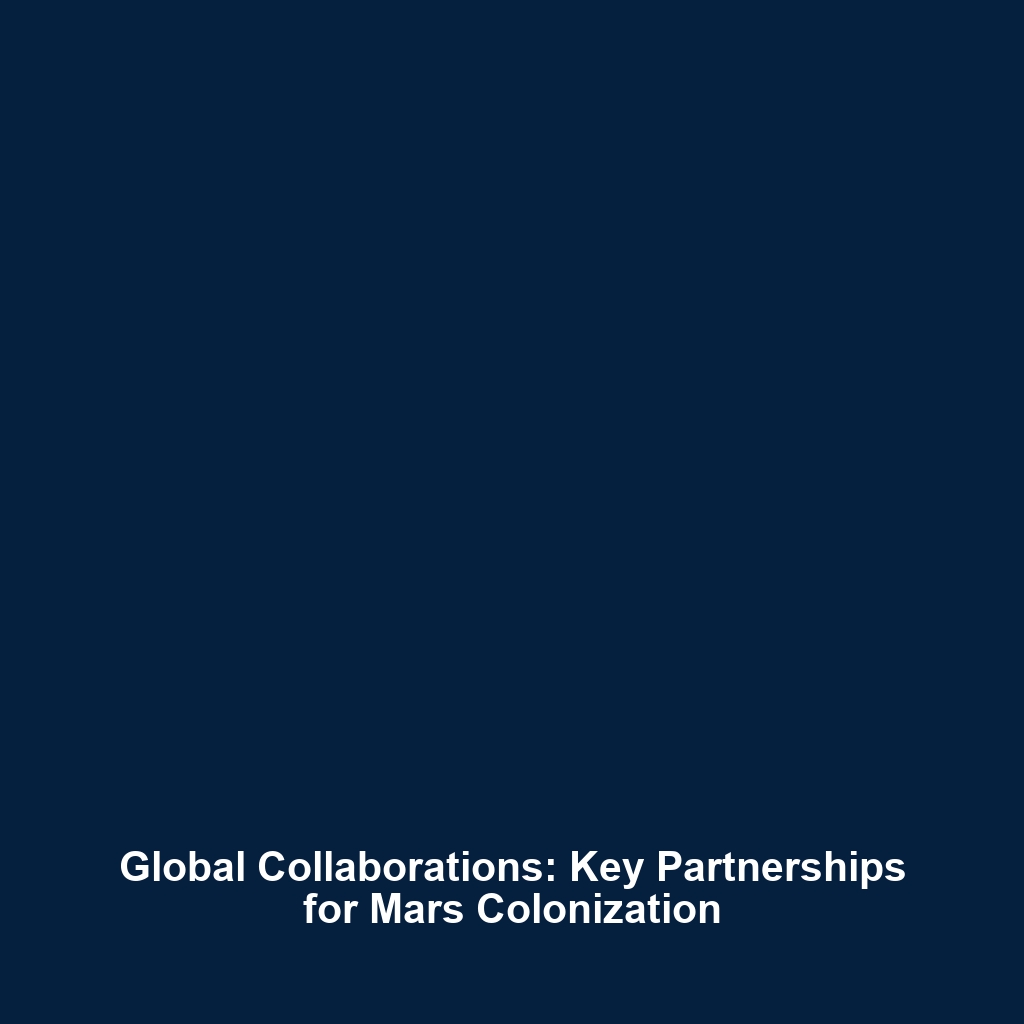Collaboration with Other Space Agencies: Potential International Partnerships for Mars Colonization
Introduction
The ambition to colonize Mars represents a monumental leap for humanity, requiring not only advanced technologies but also robust international collaboration. As single nations face the formidable challenges of space exploration, the importance of partnerships between space agencies emerges as a pivotal strategy. This article explores the significance of collaboration with other space agencies in facilitating Mars colonization, focusing on how these alliances could transform dreams of interplanetary living into reality. Understanding the dynamics of these international partnerships is crucial for advancing collective human knowledge and capabilities regarding colonizing Mars.
Key Concepts
The field of space exploration is inherently collaborative. Key concepts related to potential international partnerships for Mars colonization include:
- Resource Sharing: Collaborating countries can pool financial, technological, and human resources, maximizing efficiency in missions aimed at colonizing Mars.
- Expertise Exchange: Different space agencies bring unique skills and knowledge that can enhance mission outcomes. For instance, NASA and ESA (European Space Agency) can jointly develop life support systems needed for human habitats on Mars.
- Risk Mitigation: Diverse partnerships allow for shared risk in resource investments and mission failures, making exploration more sustainable and economically viable.
Applications and Real-World Uses
Collaboration with other space agencies presents numerous real-world applications critical for colonizing Mars. For example:
- Joint Missions: The Mars Sample Return mission, a collaboration between NASA and ESA, exemplifies how collective efforts are crucial in undertaking ambitious projects that single entities might find daunting.
- Development of Life Support Systems: International partnerships facilitate the design of advanced life support systems, crucial for maintaining human life on Mars.
- Data Sharing: By sharing scientific data from Mars missions, space agencies can enhance our understanding of the Martian environment, which is vital for sustainable colonization efforts.
Current Challenges
Despite the clear benefits of international collaboration in the colonization of Mars, several challenges persist:
- Cultural and Political Differences: Diverging philosophies on space exploration can hinder smooth cooperation among agencies.
- Funding Disparities: Varied budget capacities among nations can lead to inequality in resource contribution and participation.
- Coordination of Goals: Aligning long-term goals and objectives can be complex, given the differing priorities of involved countries.
Future Research and Innovations
Future research initiatives in collaboration with other space agencies are set to introduce groundbreaking innovations. Among these developments are:
- Technological Advancements: Innovations such as autonomous robotics for construction and terraforming on Mars are being developed through collaborative efforts.
- Next-Gen Life Support Tech: Research is underway to create sustainable agriculture systems and recycling processes for air and water, essential for long-term human presence on Mars.
- Enhanced Communication Systems: Future collaborations may focus on developing interplanetary communication technologies to support missions and human habitation.
Conclusion
Collaboration with other space agencies is a critical component in the endeavor to colonize Mars. By pooling resources, expertise, and research, international partnerships can address the complex challenges of Mars exploration and settlement. As the world progresses towards these ambitious goals, it is imperative for nations to engage in dialogues and initiatives that foster cooperation in space. For further reading, explore more about Mars missions and the benefits of global space partnerships.

